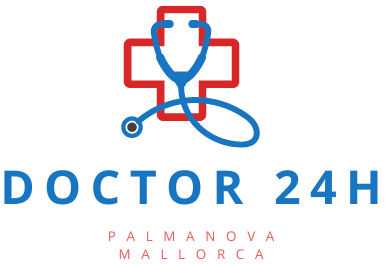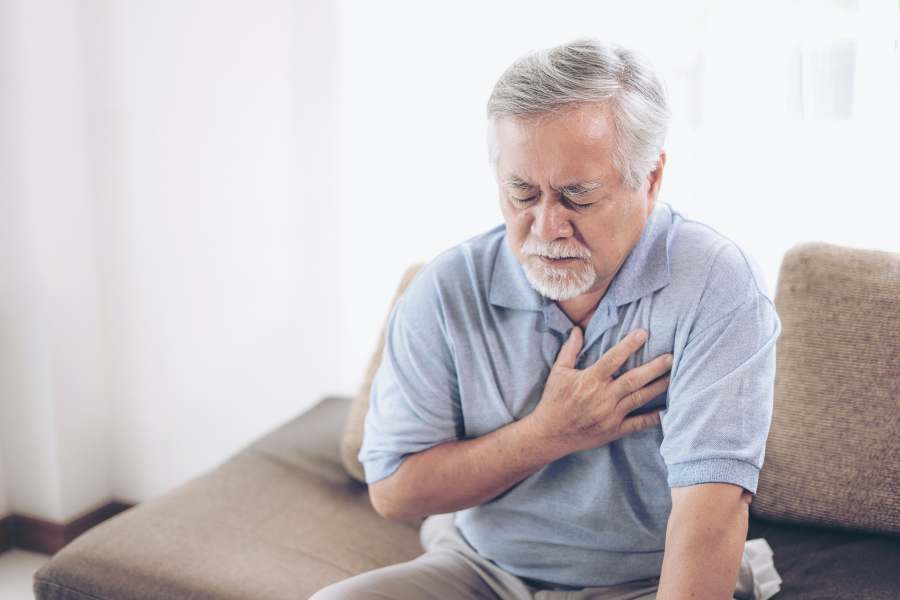Experiencing chest pain can be alarming and is often a sign that prompts a visit to the doctor. It is essential to understand what symptoms suggest seriousness and the range of possible causes.
While often linked to cardiac issues, chest pain can also stem from non-cardiac causes. Immediate medical attention could be necessary, especially if the pain is sudden and intense.
What Is Chest Pain?
Chest pain can present in various forms, ranging from a sharp stab to a dull ache. It may be associated with diseases that affect the heart, the muscles and bones of the chest, or even psychological factors.
The nature of the pain and its location can help differentiate between heart-related and other health issues. Pain can radiate to other parts of the body or be accompanied by symptoms like nausea or dizziness.
Understanding chest pain is crucial for identifying the need for urgent medical care and can guide healthcare professionals in diagnosis and treatment.
How Do I Know If My Chest Pain Is Serious?
Determining if chest pain is serious involves assessing symptoms such as the intensity, duration, and whether it is accompanied by other signs like shortness of breath or a feeling of pressure in the chest.
If the pain persists for more than a few minutes, becomes more intense, or is combined with other symptoms such as sweating or nausea, seeking emergency help is paramount.
Chest pain that worsens with physical activity and improves with rest may indicate a heart-related issue and warrants prompt medical attention.
What Are The Common Causes Of Chest Pain?
Chest pain can arise from a variety of conditions. Heart attack, angina, pericarditis, and myocarditis are among the cardiac-related causes.
Non-cardiac causes can include anxiety, heartburn, muscle strain, and lung conditions such as pneumonia or a pulmonary embolism.
Understanding the underlying cause is crucial for effective treatment. For instance, while a heart attack requires immediate intervention, heartburn may be managed with lifestyle changes and medication.
When Should I Seek Medical Help For Chest Pain?
You should seek medical help for chest pain if it is new, severe, or unexplained. Especially if associated with symptoms like fainting, severe shortness of breath, or palpitations, immediate medical attention is necessary.
Chest pain that occurs during physical activity or is not relieved by rest should also prompt a visit to the doctor or an emergency room.
If you have known health conditions or risk factors for heart disease, it is important to be more cautious and seek help early.
What Are The Symptoms That Accompany Chest Pain?
Accompanying symptoms of chest pain may include difficulty breathing, sweating, nausea, dizziness, or pain that spreads to the jaw, neck, or arms.
Other symptoms can include a sudden feeling of weakness, a rapid or irregular heartbeat, and a sense of impending doom.
Observing these symptoms can help in identifying the seriousness of the condition and the need for urgent medical care.
How Is Chest Pain Diagnosed And Treated?
Diagnosing chest pain typically involves a physical examination, patient history, and various tests like ECG, blood tests, and imaging to identify the underlying cause.
Treatment options for chest pain vary widely depending on the diagnosis. They can range from lifestyle modifications and medications to more invasive procedures such as angioplasty or surgery.
Prompt diagnosis and treatment can greatly improve the prognosis and help prevent potential complications.
What Are The Risks Associated With Chest Pain?
The risks associated with chest pain can be significant, particularly if the pain is of cardiac origin. Delay in treatment can lead to heart damage or death.
Risks can also vary based on individual factors like age, family history, and the presence of other health conditions. Having a clear understanding of these risks can guide in making informed decisions about seeking medical care.
Chronic chest pain, even if non-cardiac, can impact quality of life and indicate the need for medical evaluation and treatment.
Preguntas relacionadas sobre el dolor en el pecho
How do I know if my chest pain is serious?
Assess whether the pain is acute, persistent, or accompanied by other symptoms like dizziness or sweating. Serious chest pain is often sudden and intense.
Be particularly wary if the pain is localized to the center or left side of the chest and radiates to other areas such as the left arm or jaw.
What are 6 common non-cardiac causes of chest pain?
- Anxiety or panic attacks
- Gastroesophageal reflux disease (GERD)
- Peptic ulcers
- Musculoskeletal strains
- Pulmonary embolism
- Pneumonia or other lung infections
How to know chest pain is not heart related?
Non-heart-related chest pain is often characterized by a sharp, localized pain that can be reproduced with movement or palpation of the chest wall.
It may also be associated with symptoms that are more typical of digestive or musculoskeletal issues, such as heartburn or muscle strain.
How do I know if my chest pain is muscular or heart?
Muscular chest pain is typically exacerbated by certain movements or when pressing on the affected area. It does not usually cause symptoms like shortness of breath, which is more indicative of heart-related pain.
It is essential to consult a healthcare professional for an accurate diagnosis, especially if the pain is new or unexplained.
If you are experiencing chest pain, consider contacting or visiting “Doctor 24 Hours Palamanova Mallorca” for a comprehensive evaluation and peace of mind.

